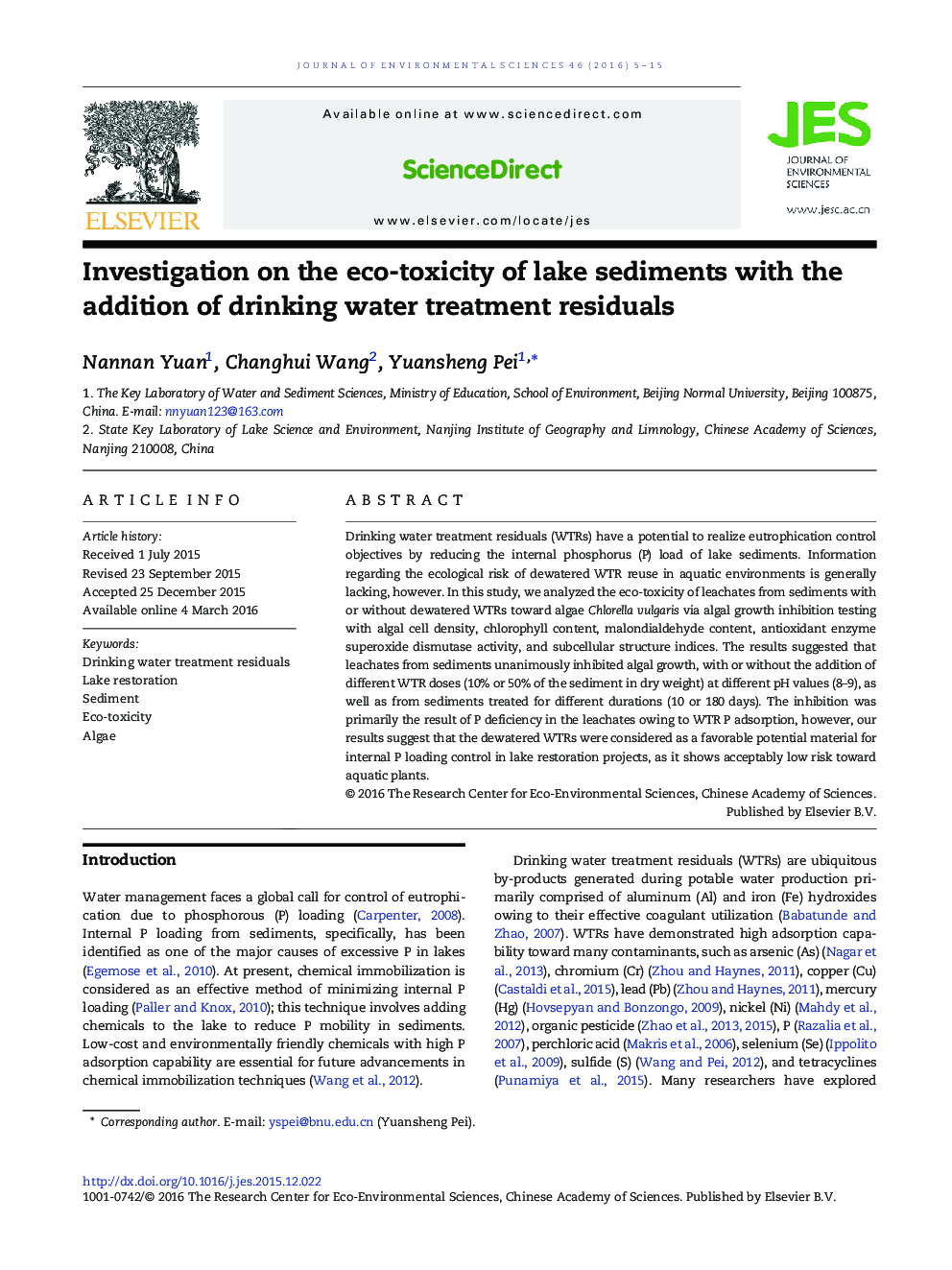| Article ID | Journal | Published Year | Pages | File Type |
|---|---|---|---|---|
| 4453621 | Journal of Environmental Sciences | 2016 | 11 Pages |
Drinking water treatment residuals (WTRs) have a potential to realize eutrophication control objectives by reducing the internal phosphorus (P) load of lake sediments. Information regarding the ecological risk of dewatered WTR reuse in aquatic environments is generally lacking, however. In this study, we analyzed the eco-toxicity of leachates from sediments with or without dewatered WTRs toward algae Chlorella vulgaris via algal growth inhibition testing with algal cell density, chlorophyll content, malondialdehyde content, antioxidant enzyme superoxide dismutase activity, and subcellular structure indices. The results suggested that leachates from sediments unanimously inhibited algal growth, with or without the addition of different WTR doses (10% or 50% of the sediment in dry weight) at different pH values (8–9), as well as from sediments treated for different durations (10 or 180 days). The inhibition was primarily the result of P deficiency in the leachates owing to WTR P adsorption, however, our results suggest that the dewatered WTRs were considered as a favorable potential material for internal P loading control in lake restoration projects, as it shows acceptably low risk toward aquatic plants.
Graphical abstractFigure optionsDownload full-size imageDownload as PowerPoint slide
